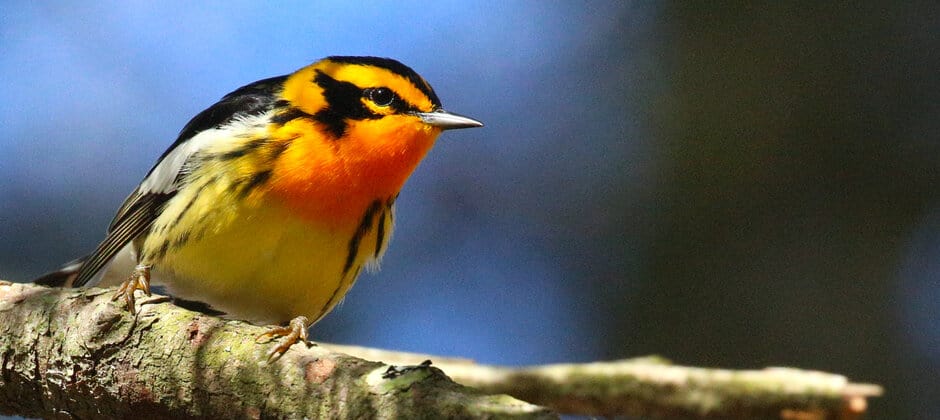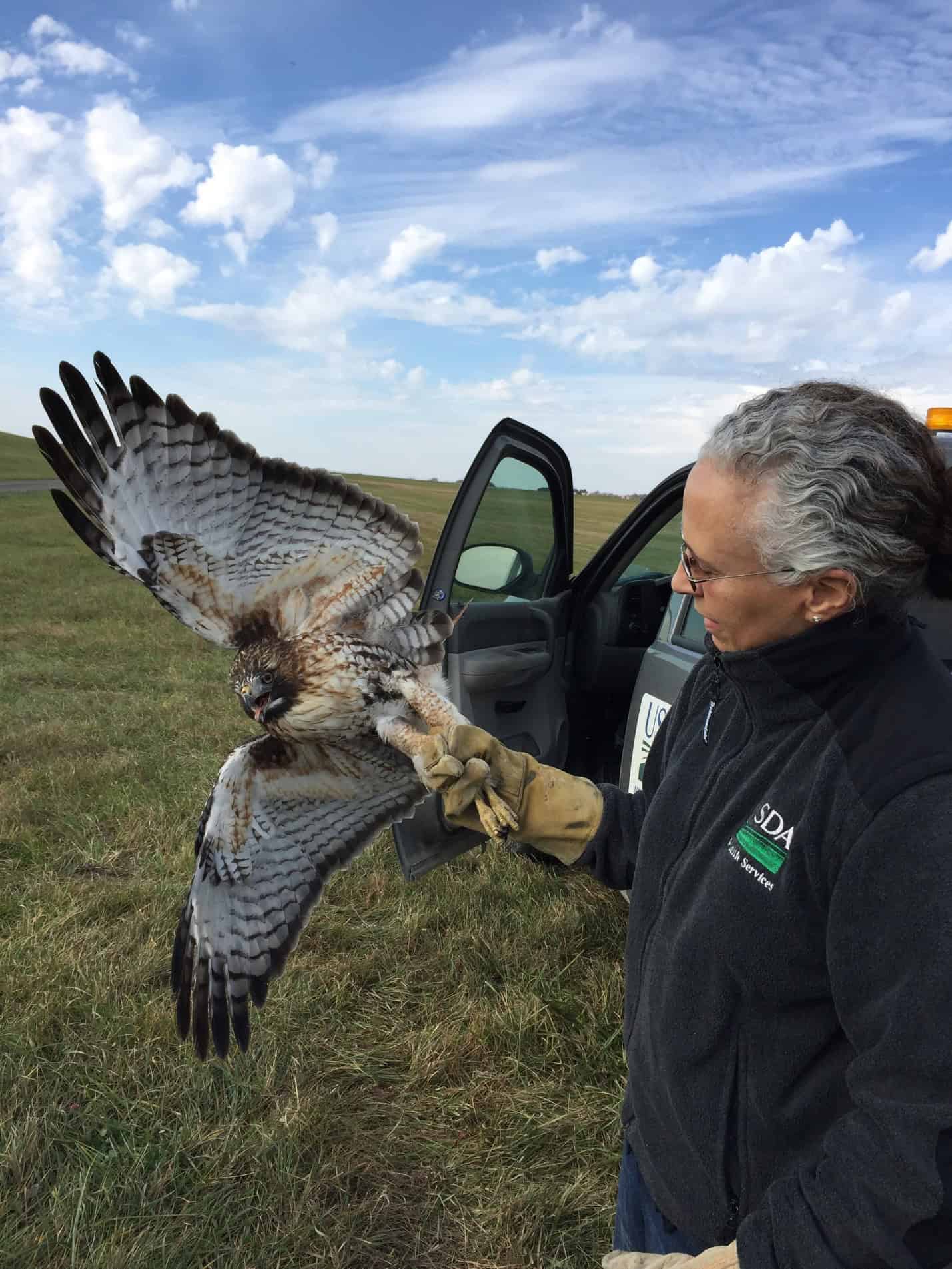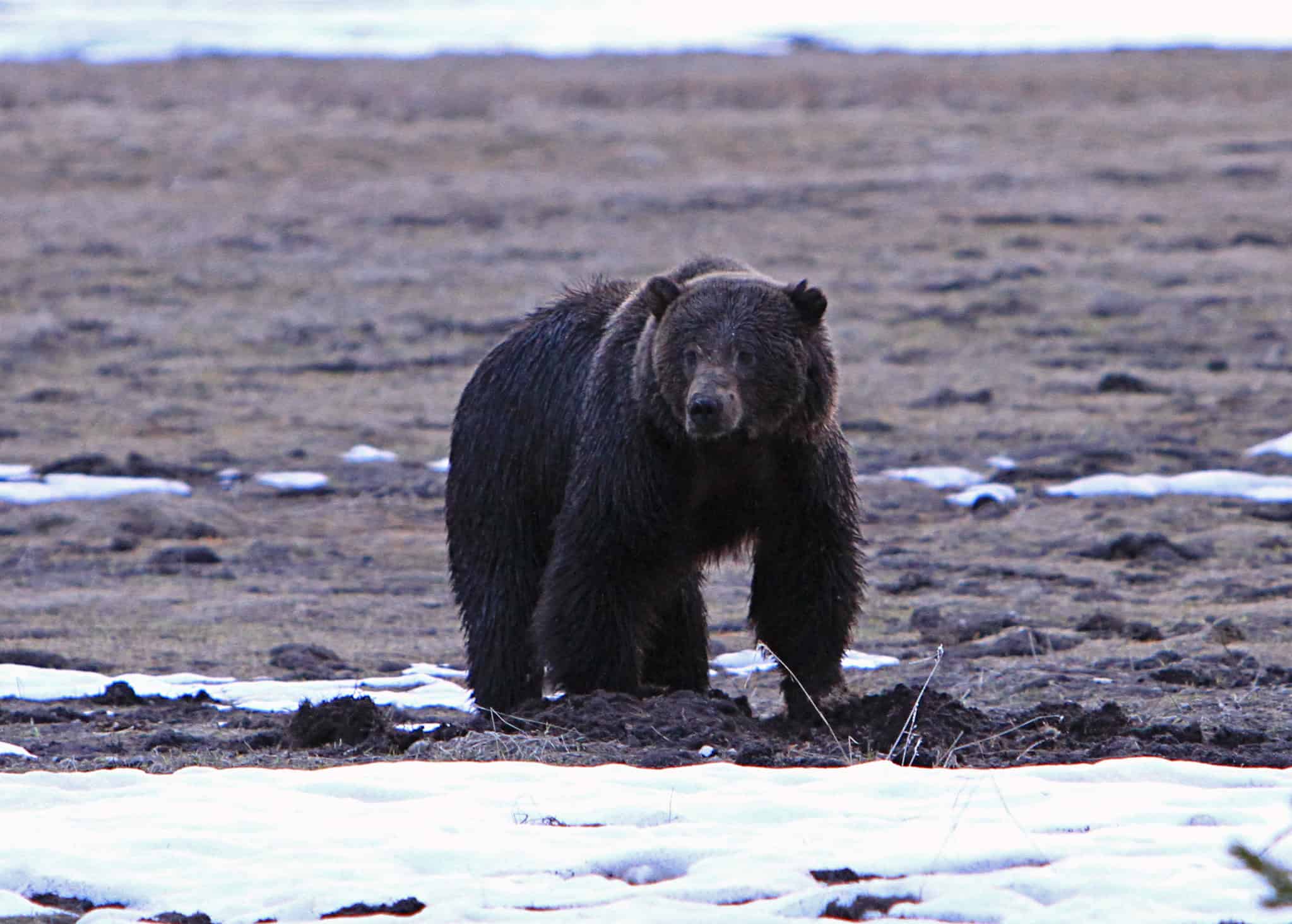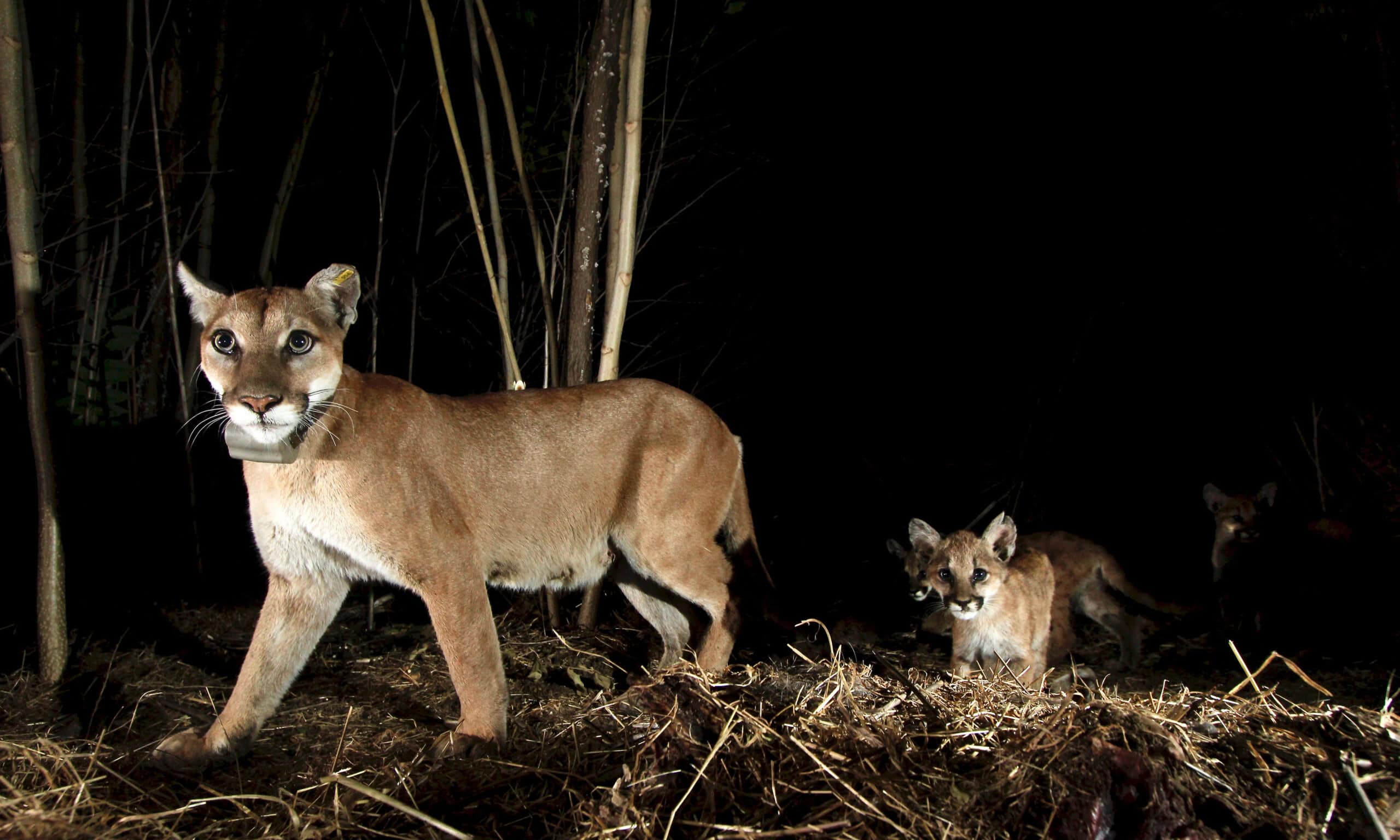Share this article
Forest degradation in Canada causes bird decline
In the Acadian Forest in eastern Canada’s maritime provinces, birds are declining due to logging old, diverse forests and replacing them with single-species plantations.
Matthew Betts, a professor in the Forest Ecosystems and Society Department at Oregon State University, first noticed this lack of tree diversity in his early 20s. To help him pay for university, he would plant trees in the growing season in spring time in New Brunswick. Earning 10 cents a day for putting thousands of trees in the ground, Betts said it was oddly fun, although a “back-breaking way of earning money for college.”
It didn’t take long for Betts to realize that he and his colleagues were planting the same tree species over and over again. This fact stuck in his mind throughout his schooling.
Upon returning to New Brunswick on sabbatical in 2021, he decided to test out whether these plantings were affecting birds. “I wanted to test the hypothesis that changing the mixed, mature forest to more simplified forests in plantations decreases habitats for birds, and in turn, affects their populations,” he said.
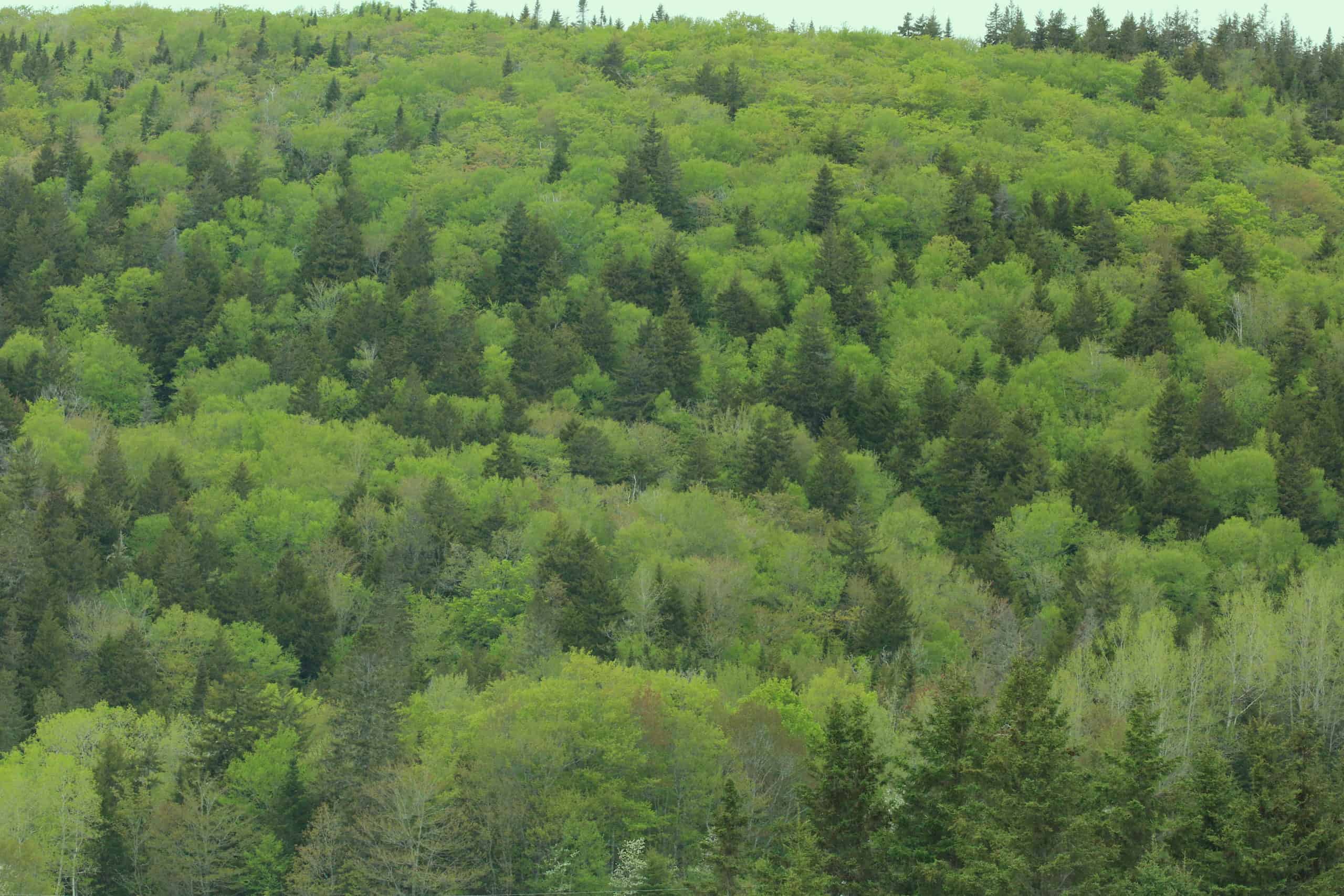
Some areas of the Acadian Forest are still mixed, which is beneficial for bird species. Credit: Matthew Bets
Betts led a study published in Nature Ecology and Evolution using satellite imagery and bird counts to answer his question.
When most people drive through New Brunswick, they’ll see green along the highway, he said. But that doesn’t mean the forest has the mix of trees necessary for all of the bird species that live there. Species typically found in those monocultures of forest include black and white spruce and jack pines. But, he said, different birds specialize on different types of trees.
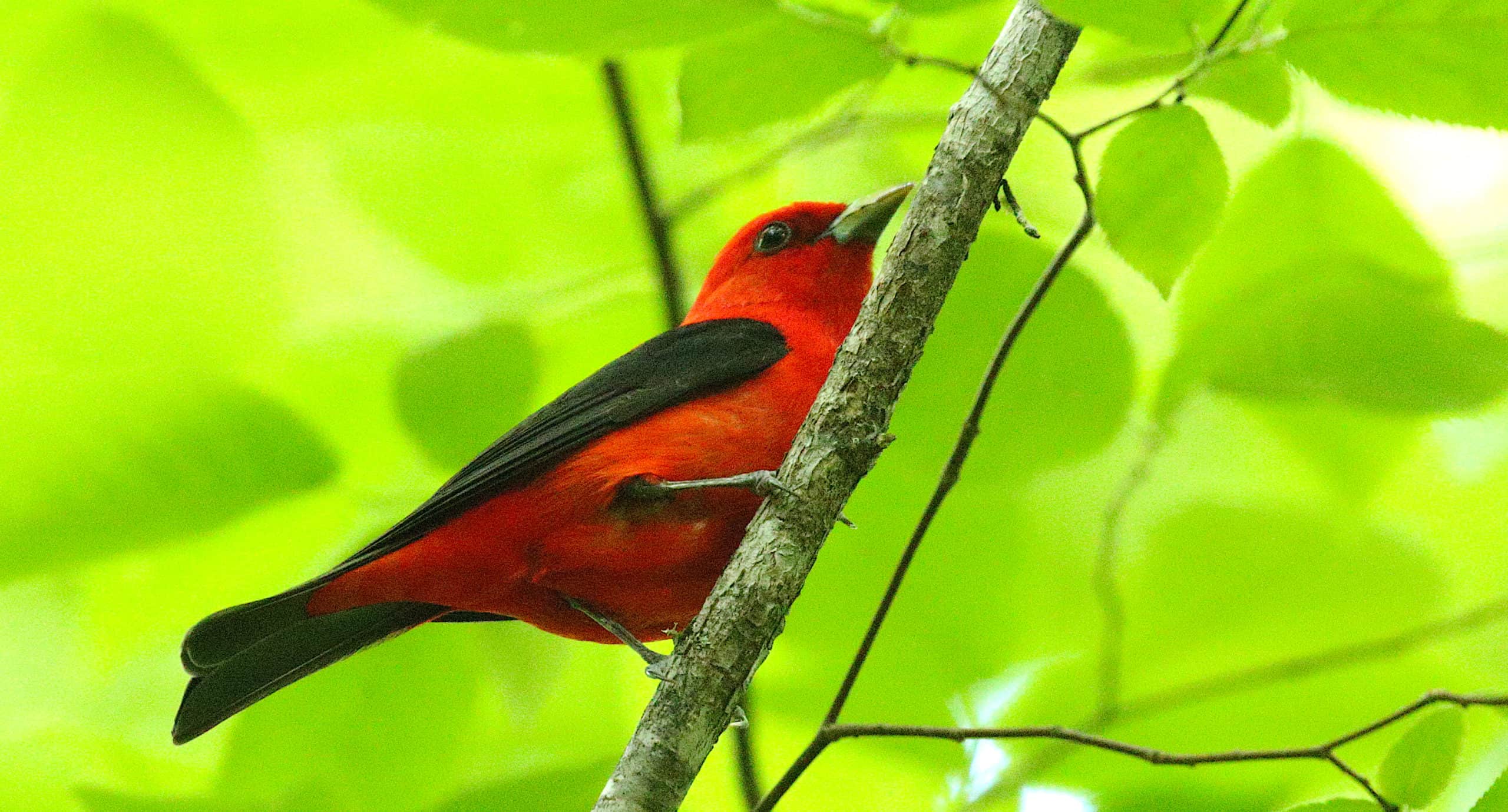
Scarlet tanagers are another species losing habitat in the Acadian Forest. Credit: Matthew Betts
To conduct the study, Betts and his team used Landsat-7 satellite data from each year dating back 35 years. They analyzed the colors of the images, as each tree species is subtly unique on the visible light spectrum. Then, they collected bird breeding data made up of point counts in these regions at the same times to determine what birds were found in the different habitats. In addition, they used another bird database collected by people counting birds while driving along 40-kilometer stretches of roads.
The team found a strong link between habitat loss and bird loss. Birds weren’t packing into the remaining habitat, and their populations were declining. In fact, they estimated the Maritime provinces have lost between 30 million and 100 birds since 1985 due to habitat loss.
To break that down, they discovered 66% of the 64 bird species they studied lost habitat over 35 years. These included species like the Blackburnian warbler (Setophaga fusca) and the golden crowned kinglet (Regulus satrapa). Some species like black-capped chickadees (Poecile atricapillus) hairy woodpeckers (Leuconotopicus villosus) and ruby-throated hummingbirds (Archilochus colubris) actually gained habitat, but those were few and far between. The good news, Betts said, is that there’s already some positive policy movement. After presenting his findings to the Brunswick Legislature last summer, the New Brunswick government is considering enacting a policies to protect more native forests, and manages forests to reduce conversion to plantations.
Betts also recommends forest managers stop clearcutting mature forests to maintain tree species diversity. Of course, he said, plantations are important for producing wood that people use. Betts doesn’t recommend stopping logging and forestry altogether.
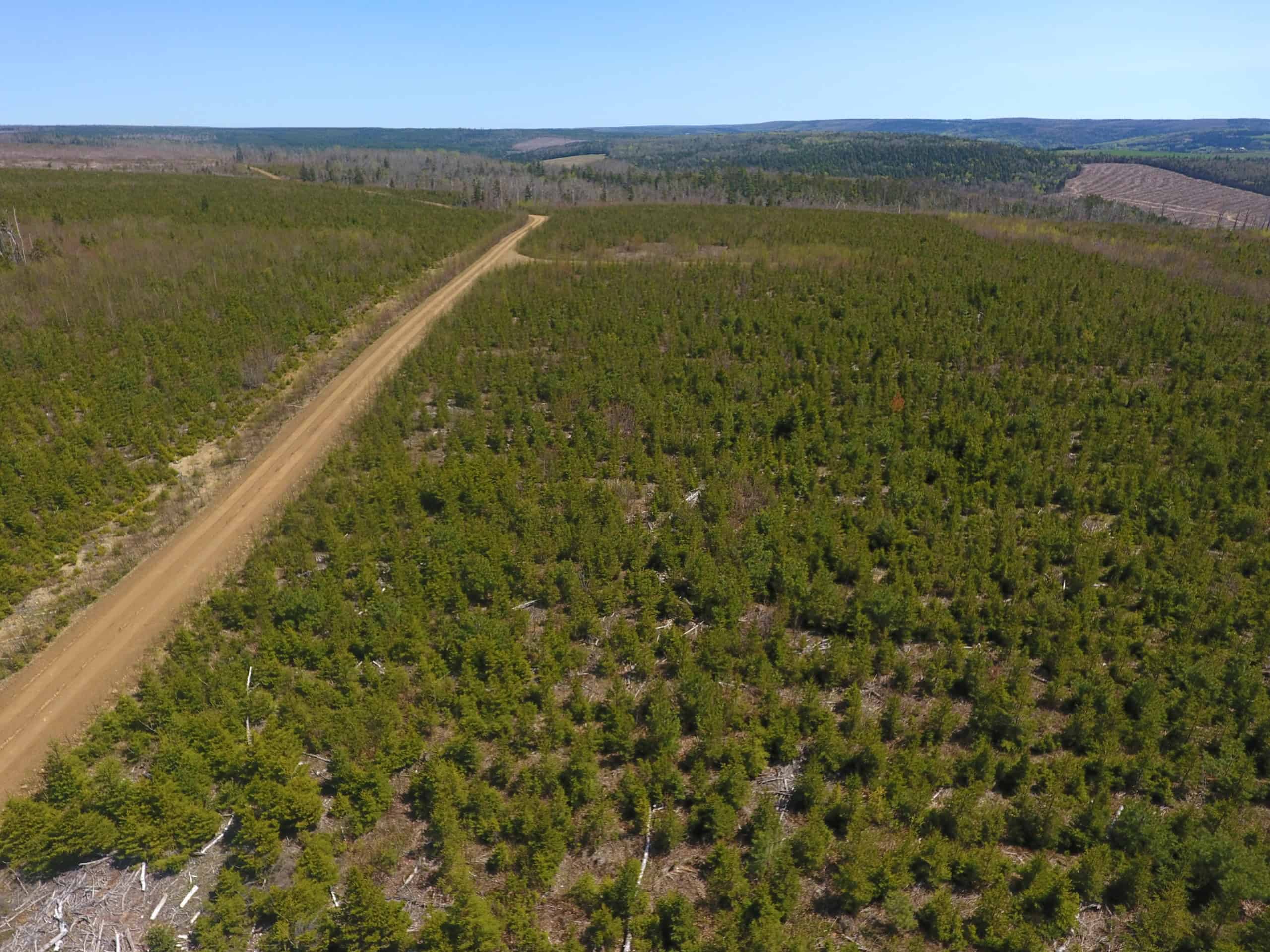
A recent clearcut that has been planted with spruce. Credit: Frank Johnson
“This isn’t a story about all plantations being bad,” he said. “It’s a story about how replacing diverse natural forest with plantations is not a great practice.” He says that some plantations are necessary as they satisfy our demand for wood. But he suggests growing these plantations in areas already less suitable for bird species.
Conserving these native forests may even help other wildlife species besides birds. Betts and his colleagues chose to study birds because of the vast datasets available. “There’s a likely hypothesis that a whole bunch of other associated species of mammals, reptiles and others are responding in a similar way, if not maybe even worse,” he said.
Header Image: Blackburnian warblers are one of the species that has lost habitat in eastern Canada. Credit: Matthew Betts



